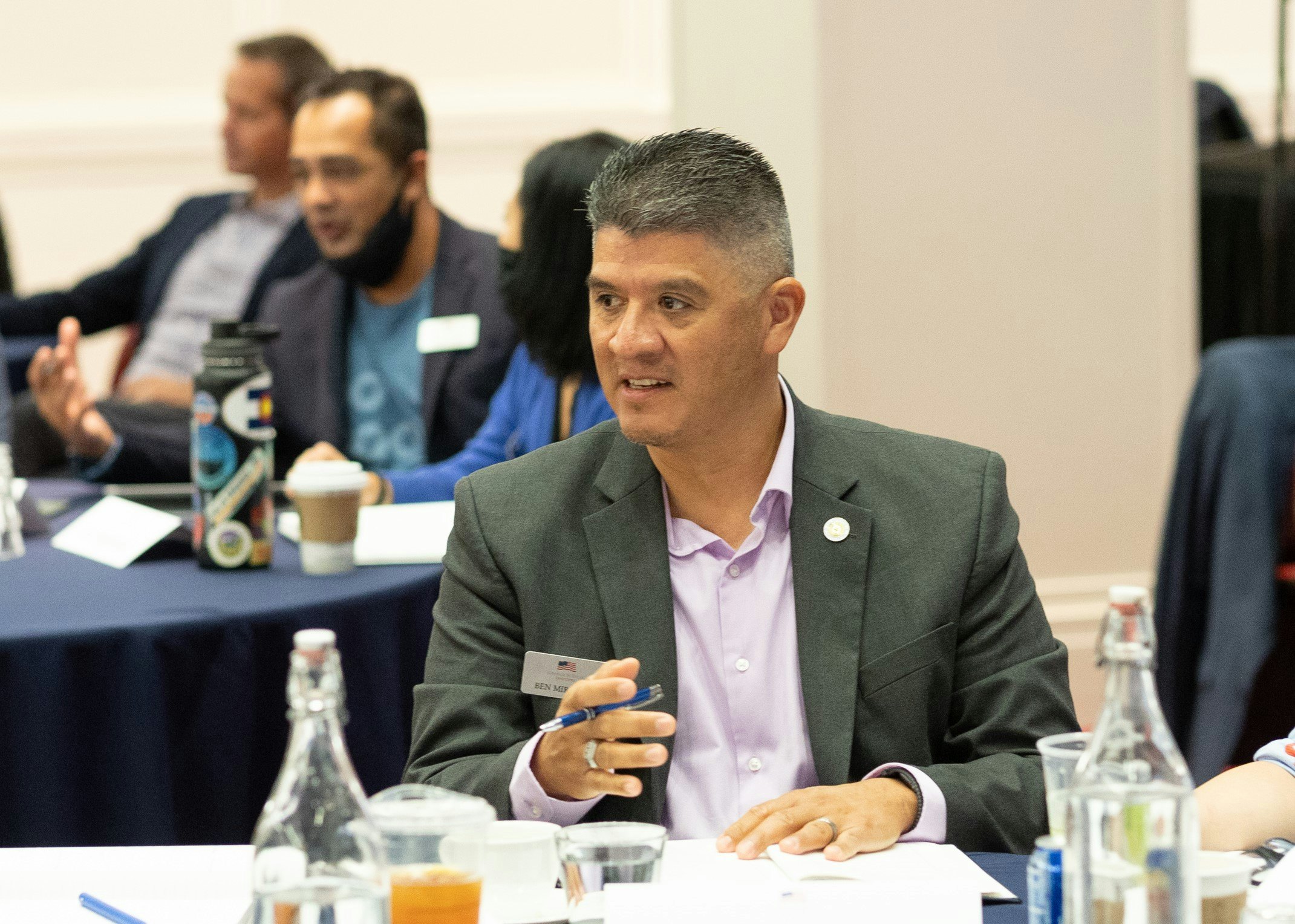If you were to ask a military service member why they volunteered to serve in the U.S. Armed Forces, you’d likely hear some combination of four reasons: purpose, opportunity, variety, and stability.
For me, a trip to the Soviet Union to play hockey at age 12 sparked my desire to serve. In a place very different than home, I recognized how lucky I was to have been born in the United States, and I committed to finding a way to convey my gratitude. On my first visit to West Point, I knew that service in the U.S. Army would be my way to deliver on that commitment. Thus, I found great meaning in serving a purpose larger than myself.
Once in the Army, I learned that the opportunities the military provided could benefit not only me and my aspirations, but my family’s as well. For my wife, who decided to enlist after she answered a recruiter’s phone call intended for her younger brother, the Army was a chance to see the world beyond her small Midwestern town in addition to helping her earn money for college. During her service, she deployed to Egypt, a place that had been at the top of her travel list since 6th grade. Following her service, she earned her undergraduate degree. In fact, both of us were the first in our families to graduate from college.
My Army career also provided me a variety of roles and responsibilities that I could not have had in any other profession. I trained soldiers and led them in combat; I taught economics to undergraduates; I advised senior leaders on a range of challenging issues. We lived in numerous places, and we met so many friends who have become like family.
Throughout our military experience, we thrived on a foundation of stability. While we did not become financially rich, we managed a comfortable lifestyle that enabled us to raise a family and focus on service to our country without fear of losing our jobs and benefits.
Those core tenets – purpose, opportunity, variety, and stability – benefited us so greatly while in service.
If you were to meet a military service member transitioning back into civilian life, you’d likely ask them what they wanted to do when they left service. It is a reasonable question, and perhaps the one most often asked of transitioning service members. There is, however, a better question that would positively influence their transition.
When it was time for us to transition back to civilian life, something every military family must endure, we quickly saw those raisons d’être pulled out from under us. While everyone’s transition is challenging and unique, perhaps common to every transition from service is this immediate loss of purpose, opportunity, variety, and stability.
When service members return to civilian life – whether after 3 or 33 years – we run the risk of losing the higher sense of purpose that had been ever-present in our day-to-day military lives. Those tenets that the military provides us are much tougher to come by in civilian life. During my transition out of the military, I found myself questioning whether the previous 25 years had been worth it, while struggling to envision what the next 25 years might be like. My transition, like many of my fellow service members, was the most volatile emotional roller coaster I had ever experienced.
Transitions can be traumatic for everyone, but military service members might be the most unprepared for career and life transition. Even General Dwight D. Eisenhower expressed anxiety as he approached his retirement, noting that he “faced a monumental career choice with absolutely no experience in making career choices.” If soon-to-be President Eisenhower had anxiety about his transition, then it is absolutely okay – even expected – that every transitioning service member have anxiety about theirs.
Perhaps the most anxiety-inducing question for a service member is that most often asked question, “what do you want to do when you get out of the military?” Again, it is not an unreasonable question. But what we want to do after the military might not be what the civilian world needs from us. For instance, the civilian world certainly did not need, or want, me playing professional golf in my post-Army life.
Herein lies a fundamental issue with how we, as service members, perceive our role in the civilian world after our time in the military is up. The question shouldn’t be “what do I want to do when I get out?” Rather, the question should be “what do I have that the outside world – the market – needs?”
Furthermore, this question shouldn’t be posed at the end of our career, but at the beginning. Everyone transitions back into civilian life, and the sooner we begin taking stock of how our skills, knowledge, and attributes evolve during our military service, then the more prepared we would be for that emotional transition back to civilian life. Reflecting on our personal and professional development can only benefit from long-term thinking. If we are better prepared for that transition, then our final experience in the military will be positive, and we can be great ambassadors of military service encouraging others to serve. Thus, a service member’s transition from service must begin upon their entry into service, especially to preserve the All-Volunteer Force.
So, the next time you meet a transitioning service member, ask them first why they chose to serve in the military. Then, ask them what it is they have that the civilian world needs. Taking time to ask those two questions would be a great way to really thank someone for their military service.































